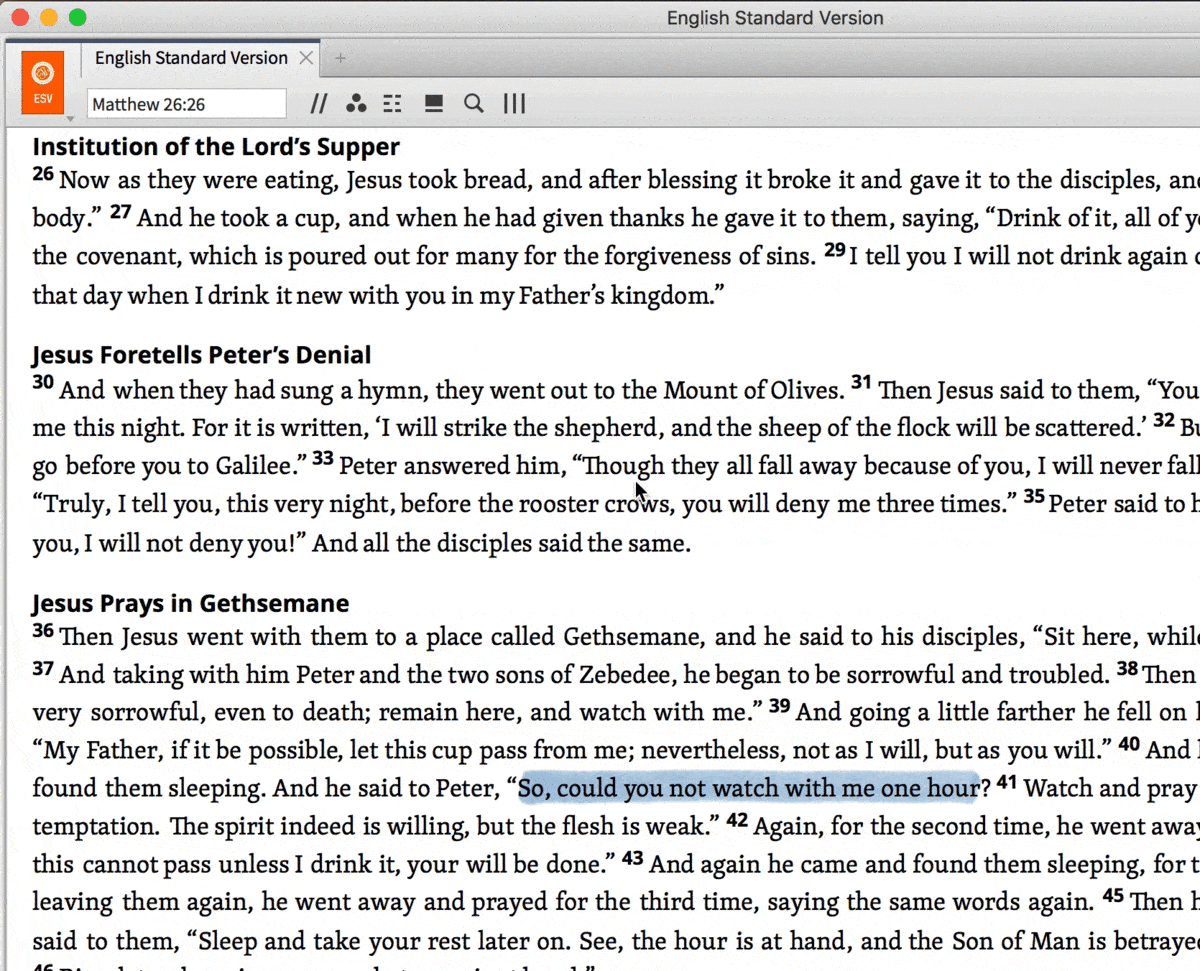I’m not opposed to using the scenic route down the coast from work to home; I’ve taken it multiple times. But never on a workday, always on a Saturday.
I’m not opposed to using the scenic route in Bible study, either. I’ve taken it multiple times. But not usually when I have to prepare a Sunday school lesson or sermon during my “free” time in a long workweek.
So when I run into an interpretive question I need to answer, I unashamedly bring all the shortcutting power of Logos Bible Software to the task. I try to shorten the distance between the Point A of ignorance and the Point B of knowledge.
A Bible study shortcut example
An example: the other day I was preparing to teach a passage in Matthew 26 that included this statement from Jesus:
I tell you I will not drink again of this fruit of the vine until that day when I drink it new with you in my Father’s kingdom. (Matt 26:29)
I always assumed Jesus was talking about “new wine” (as in “new wine in old wineskins” or “they are full of new wine”).
But I happened to mention this to a friend, and he disagreed: “I read new as adverbial; drinking it anew means ‘drinking it again.’”
Now this is not a major theological controversy, but Internet rules clearly state: “You are right, so do not back down after making any assertion whatsoever.” So I rapidly called up to my Logos commentaries to let the commentators prove me right.
I had a narrow question: “What do the commentators think ‘new’ means in Matt 26:29?” I didn’t want to wade through all the interesting things the commentators were saying; I wanted to dive right into the relevant things.
So I ran a Passage Guide report on Matthew 26:29, opened up my best Matthew commentaries—a dozen of them lest I be guilty of insufficient sampling—and clicked the Visual Filters icon in the menu of the Bible I had open. I made sure “Corresponding words” was turned on, as well as “Same surface text” underneath it. Then I clicked the word “new” in my Bible text.
Take a close look at what I subsequently saw (see below). All the “corresponding words”—all the instances of the word “new”—were highlighted in my Bible and in my commentaries as well.
Not every use of the word “new” in my commentaries will be relevant to my question, but it would be difficult or impossible for them to answer it without using the word at all.
The Corresponding Words feature allowed me to quickly surf to the place in my text that I was most interested in. And it did this for each commentary. Faster isn’t always better in Bible study—I know, I know. But in this case, when my sole purpose is to see how major commentators “vote” without getting bogged down in arguments (something I might still have needed to do later), using the corresponding words feature came in handy.
Don’t just read your books. Use them.
I won’t rest until I create a new cliché for Logos users, because it’s an important truism: Logos provides a set of tools for those who don’t just read their books but use them.
I like my Kindle; it does some things well. But I know better than to purchase commentaries on it, or any reference work for biblical studies. The few times I have gone against my better judgment (usually because of some 99-cent deal) and purchased commentaries for my Kindle, I have discovered the truth of the maxim that “a bargain is a pickpurse.” I have used those Kindle commentaries precisely zero times, because Kindle books can’t be used, only read. Amazon got my vending machine money, but I didn’t truly get anything of value in return.
So who was right about “new with you,” me or my friend? Honestly, the commentaries were not decisive. N.T. Wright is on my side, though (see above at the bottom of the image), and his initials reportedly stand for “New Testament.” That has to count for something.
Make the most of your time in the Word with this free course.
Faster isn’t always better in Bible study, but eliminating time-wasters like page-flipping, hunting down cross-references, and scouring indexes rendered in eye-straining type is. In this course, we’ll teach you a proven method for understanding the biblical writers’ original meaning—and how to bridge the gap from ancient context to everyday life—without cutting corners. You’ll put essential Bible study skills into practice as you work step-by-step through a guided study on the book of Jonah.







